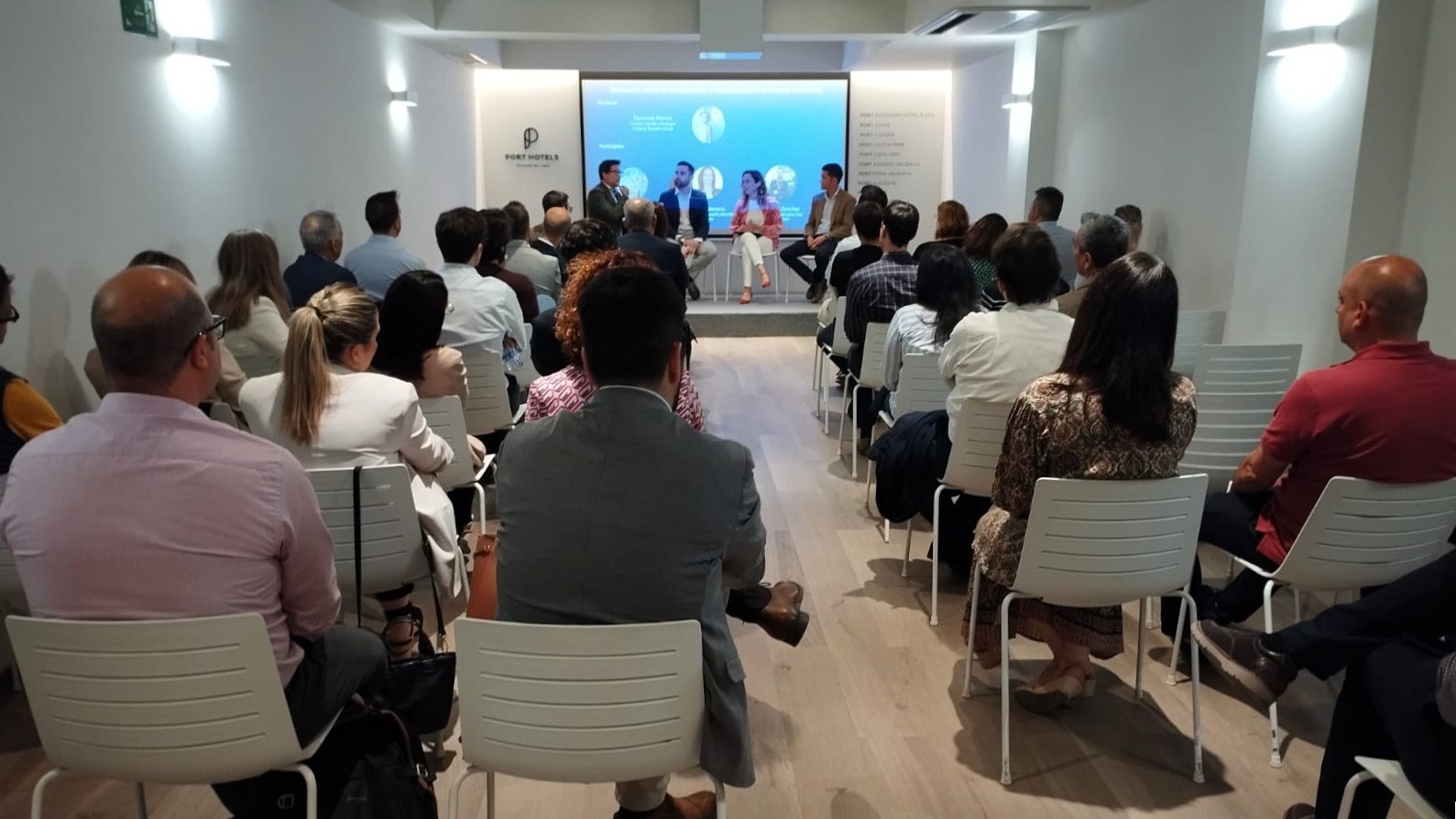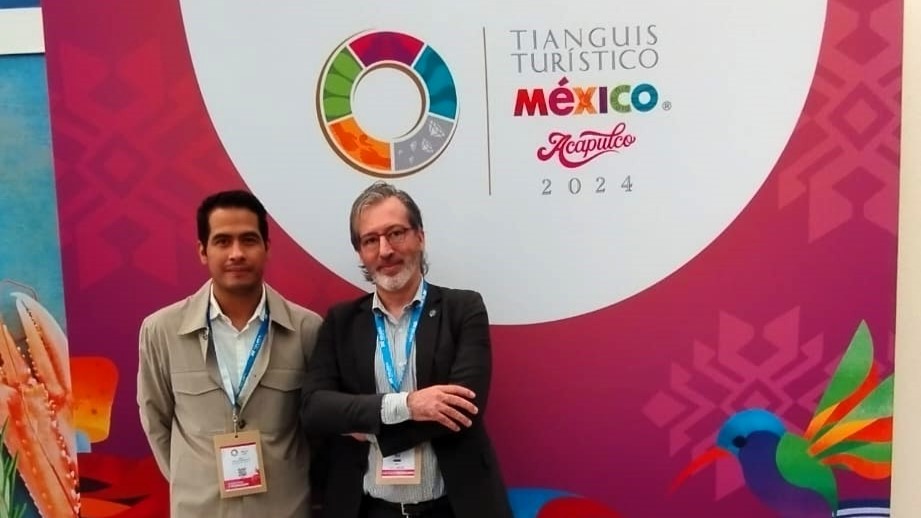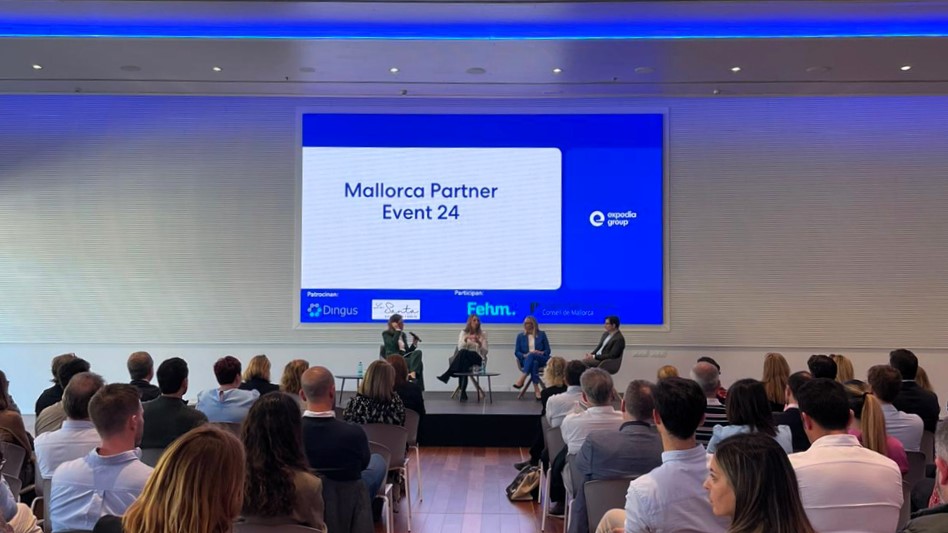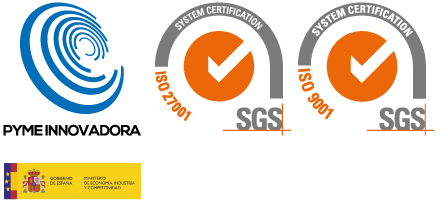At the recent International Fair of Intelligent Tourist Destinations (FIDI) organized by Argentina, our business development manager participated in one of the virtual tables to discuss trends. Paula Servera focused on Dingus’ vision about it, from the point of view of hotel distribution and tourism commercialization.
As 2020 draws to a close, and in an extraordinary situation of pandemic, tourism commercialization is also being greatly affected by the constant changes and international swings that affect hotel distribution. The recent International Tourism Destination Fair paid special attention to all of this, with sessions, talks and virtual round tables to shed light on the sector about the uncertain 2021.
The intervention of the head of business development of Dingus analyzed three of the currents that we are observing. Firstly, Paula Servera referred to the remarkable acceleration in the digital transformation processes (as a goal) and digitalization as part of the way to achieve it. This injection of speed is a reaction to the reality that the pandemic has revealed: “the most digitized companies have started with an advantage, while those that do not have their processes automated and technologically are further behind, have found that not having everything in the cloud or lack of teleworking systems, has made them less competitive and efficient. From a commercial point of view, hotels without CRS or Channel Manager have suffered more both in the management of reservations, with all the flood of cancellations, date changes, bonuses, etc., and in the availability part. However, those with process automation tools have been several steps ahead, in addition to those with a greater distribution map, with more channels connected, greater diversification and, therefore, the possibility of playing with a greater number of issuers”.
Secondly, we detected an increase in Open Innovation strategies, although now it is essential that these tools “work in a coordinated and interconnected way. The hotels are demanding an aggregate offer that simplifies the whole scenario of different software, which requires an optimal integration of these technologies and that each one contributes its value, allowing companies to be competitive. We believe that individually they cannot face the challenges of the day-to-day life we live, both because of the changes in the market and the different regulations. Open Innovation strategies allow this openness to the integration of different technologies, which are the only ones capable of managing what is to come”.
The third trend for Dingus is data orientation. This pandemic “has been an example that, for example, by applying Business Intelligence we could have been ahead of the curve in the response. For hotels it is essential today to have BI technologies to make decisions in different, changing and uncertain scenarios”.
What DataHotel indicates
The tool of our knowledge platform Data Intelligence, DataHotel, with the aggregated data of the hotels connected to Dingus, shows us that this year there has been great movement of channels, since “both OTAs and booking engines have increased their market share. Especially the latter, as the customer demands a more direct contact. The percentage that has decreased the most has been that of turoperation, due to cancellations of a sale that is made earlier”.
As for the client “reservations by families have been reduced, those of couples have increased, and there has been much change in the time in which they are made, cut back from the usual (which is about six months). We believe that this is mainly due to the type of customer with whom our hotels work and their destinations of origin, more planners. In addition, this year short stays have dominated“.
If we approach the crisis as a time of opportunity for new approaches, we believe that hotels must also pay close attention to new traveler profiles “such as digital nomads who, being already a niche market, have grown in these months, and the bleisure segment that combines leisure with work. In addition, the guest is having a greater preference for added value than ever before. They no longer looks so much at price as at security or flexibility, and values much more the sustainability of the destination with its additions of open spaces, nature and less congestion”.
Also interesting are the reconversions to add other modalities to the traditional product, such as offering rooms for days and hours, or as the day pass/service for residents that “in Spain was not very common, but has begun to have a certain presence, and also is a way to reduce the costs of hotels. In short, the guest is looking for other things and it is a good time to offer them“.
In Dingus we believe that it is an occasion to reconsider the current models and to lean on the technology, which is the one that is going to indicate us with predictive models towards where we go. This 2020 has shown that historical models are no longer used to make correct decisions, and we must take advantage of new formulas to embark on the recovery.





